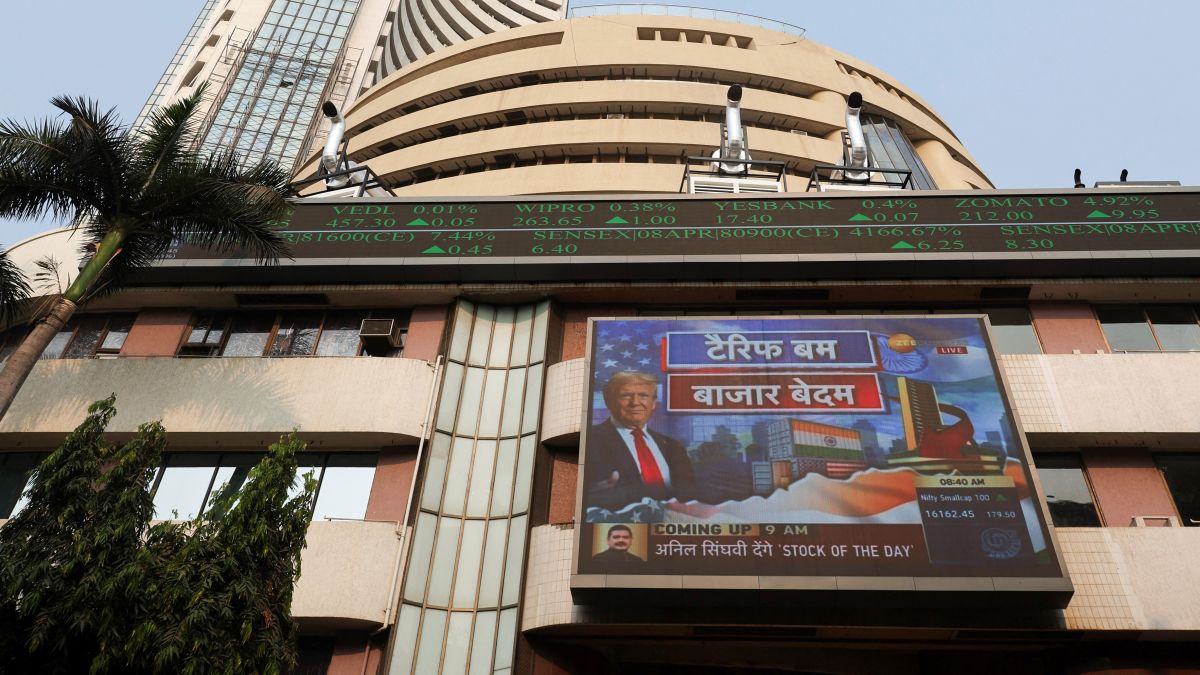Asian markets made a sharp fall on Friday after a massive sell-off on Wall Street, as rising trade tensions between the US and China triggered a risk-off mood among investors.
However, the Indian stock market indices opened with a rally on Friday, outperforming their Asian peers. Though, this was the first reaction of the Indian equity market after the White House announced a 90-day pause on ‘reciprocal’ tariffs, boosting investor confidence.
The S&P BSE Sensex jumped 1,353.59 points to 75,200.74, while the NSE Nifty 50 rose 443.70 points to 22,842.85 by 9:43 am.
Bloodbath in Asian markets
Japan’s Nikkei was the hardest hit on Friday, with a fall of more than 5 per cent. The Nikkei 225 sank 5.46 per cent, while the broader Topix index fell 5.05 per cent.
This came just a day after the Nikkei had surged 9 per cent following President Donald Trump’s U-turn on tariffs with the pause.
South Korea’s Kospi fell 1.55 per cent, while the Kosdaq slipped 0.11 per cent. Futures for Hong Kong’s Hang Seng index also pointed to a weaker start.
In Australia, shares dropped sharply, with the S&P/ASX 200 falling 2.4 per cent to 7,524.50. New Zealand’s S&P/NZX 50 index was down 1.5 per cent.
‘There will always be transition problems’: Trump
These developments came after Donald Trump, addressing the stock market turmoil, said on Thursday that “there will always be transition problems” and “difficulty”.
His remarks followed the White House’s announcement of 145 per cent tariffs on certain Chinese products — higher than the earlier reported 125 per cent — because a 20 per cent tax already applies to items due to the drug fentanyl.
Impact Shorts
More ShortsTrump’s ‘Liberation Day’ tariffs and quick U-turn
President Donald Trump announced major new tariffs, including a 34 per cent tax on Chinese imports and 20 per cent on goods from the European Union, calling the move ‘Liberation Day’.
But after facing strong backlash, he quickly reversed course just hours later. Trump announced a 90-day pause on the new tariffs — though the suspension does not apply to China.


)

)
)
)
)
)
)
)
)



